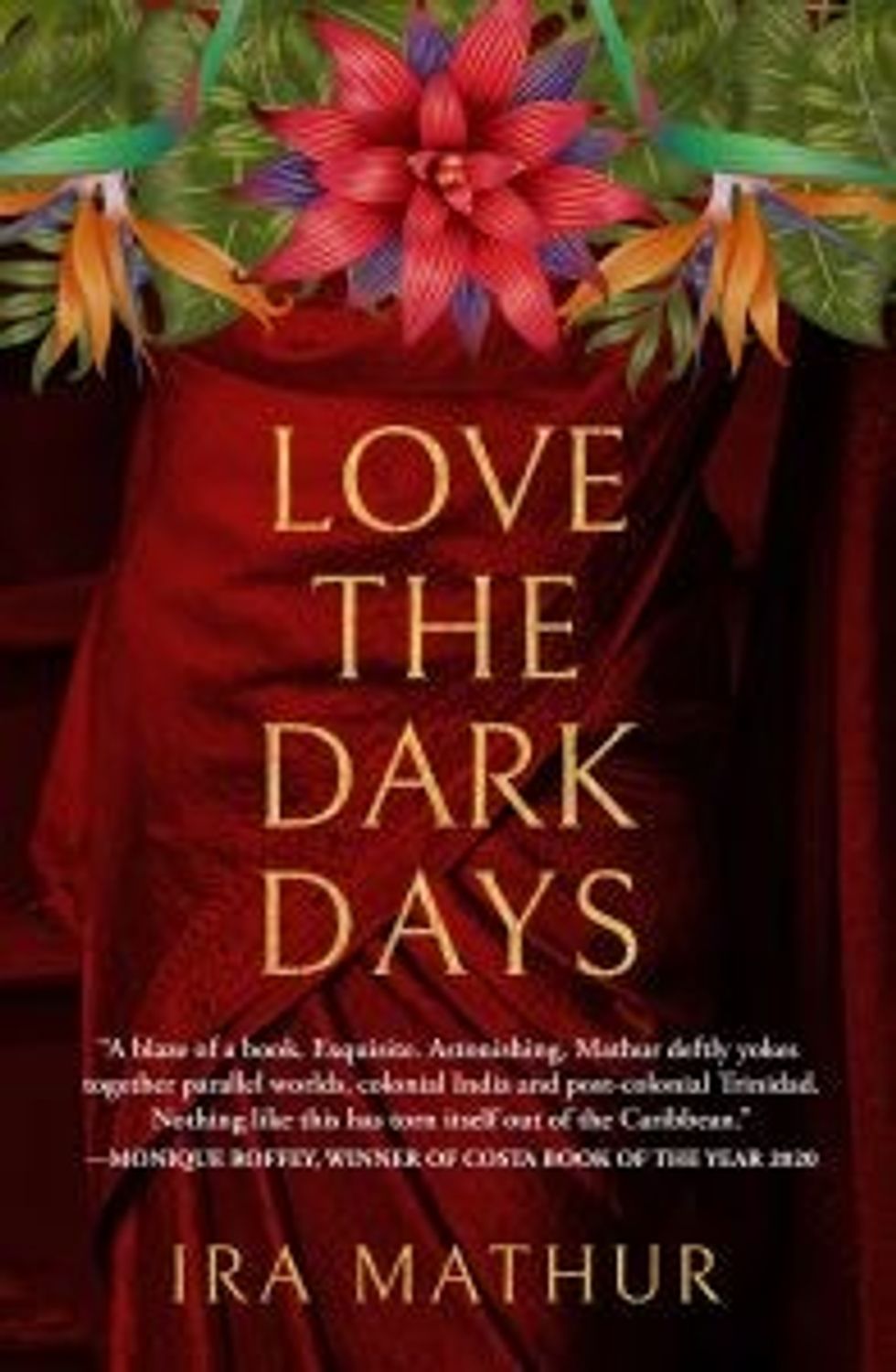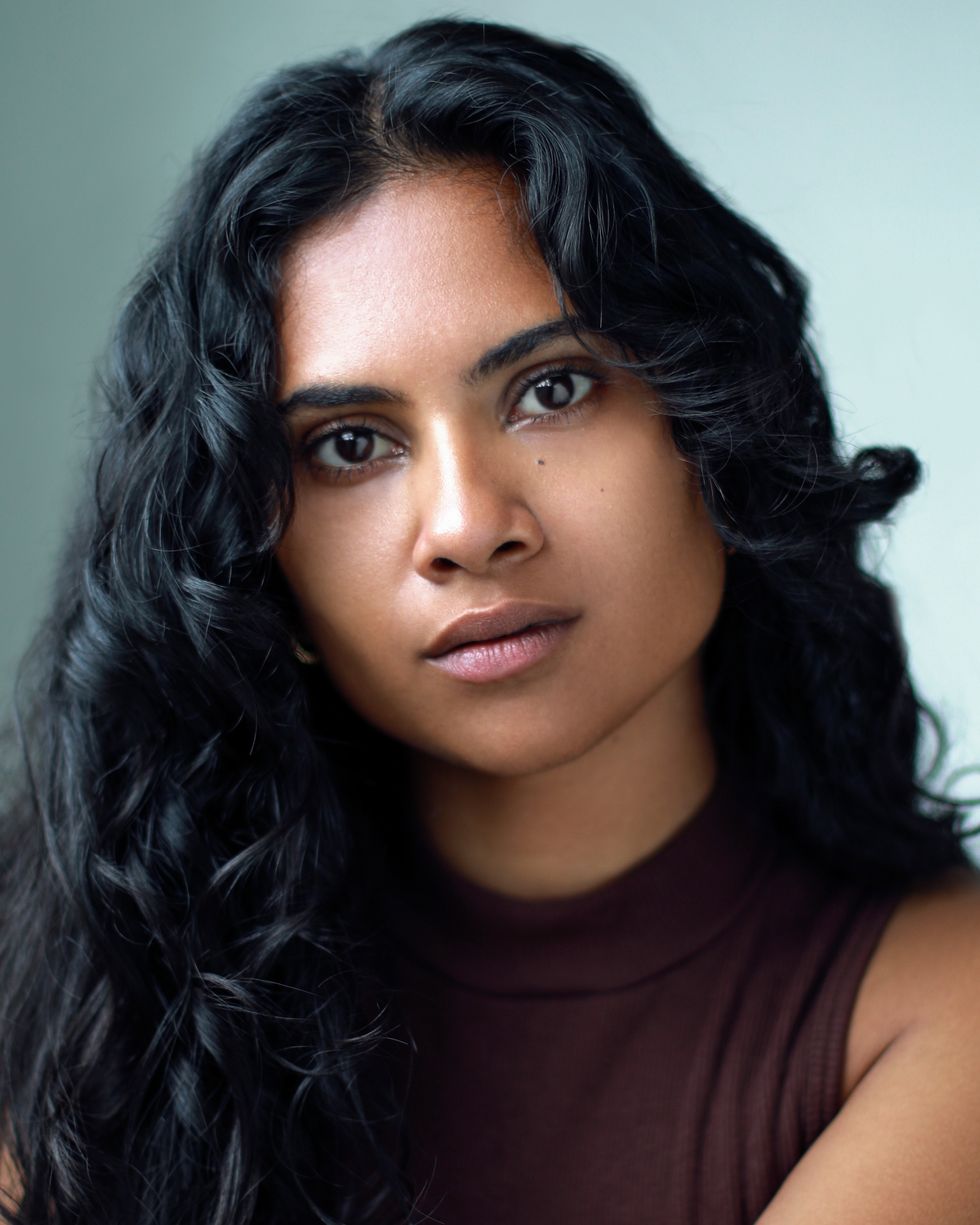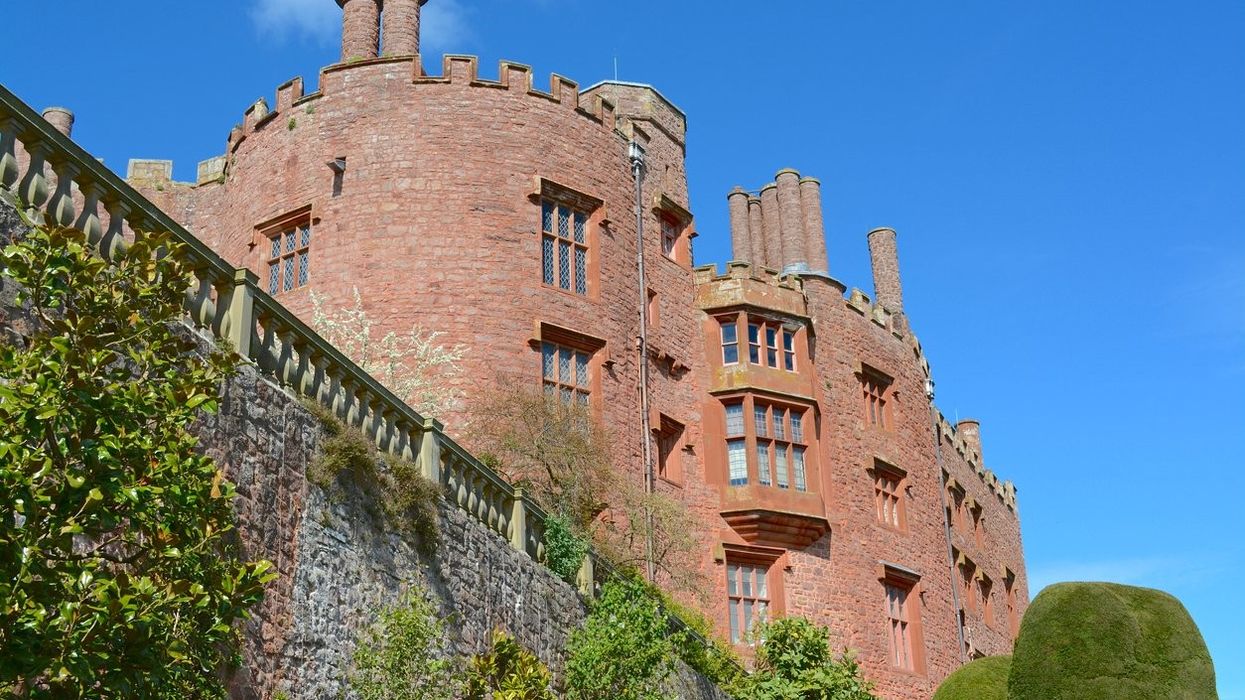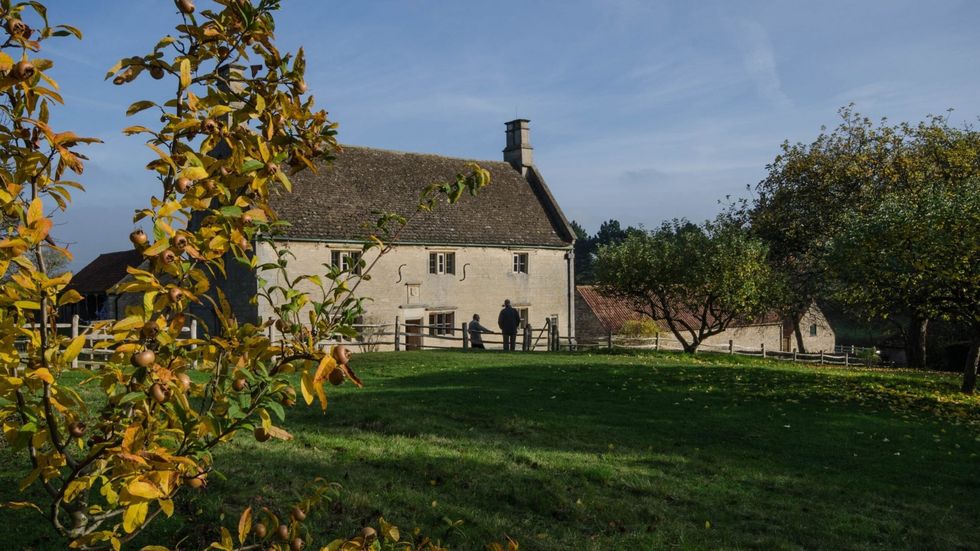Award-winning journalist’s debut novel explores family, empire and migration
Being introduced to centuries-old stories connected Ira Mathur to writing from a very young age.
This led towards an award-winning career as a multi-media journalist and writing newly published debut novel Love The Dark Days.
The creative memoir, written like a novel, is based on a true story, and has received great acclaim. It tells a compelling story of an Indian family across India, England and Trinidad, and different generations. Her book offering a unique window into history, explores themes of a disintegrating empire, migration, race, and gender, along with inventively including a weekend with late Nobel laureate Derek Walcott. It also looks at the close connection between India and the Caribbean. This adds to the impressive achievements of the writer and introduces a new literary voice with something unique to say.
She spoke to Eastern Eye about her novel, writing, and the greatness of Nobel Prize-winning writer Walcott.
What first connected you to writing?
When I was six, I already felt I was hundreds of years old because my grandmother told me stories of Mughal emperors, and my father told me stories from the Mahabharata and ancient Indian history. My grandmother’s library was packed with Victorian novels, poetry, Arabic and Parsee texts, and musical scores. Her books transported me to many worlds. Once I started reading, I couldn’t stop. I still have six books going at one time.
What inspired you to write this book?
When my grandmother was dying, she told me stories about a vanished India of the British Raj. I wondered why she ended up alone and penniless despite her privileges – born a princess into Indian royalty, with beauty and musical talent. I had begun forgetting words in Urdu and Hindi. As an immigrant to Trinidad, I felt the past was being cut away from me. I wrote it to remember the past and understand the present of the glittering islands of Trinidad and Tobago, where my parents moved when I was a child.
Tell us about the story….
It’s about generations of women born into Muslim princely families of Bhopal and Savanur and what happened when my grandmother broke hundreds of years of tradition and was disinherited for marrying a Hindu army officer. It’s also about how patterns are created in how we treat our daughters, and how that damages those we love. In the Trinidad strand of my novel, I spend a weekend with Nobel laureate Derek Walcott, who helps me understand India’s old world and step into the new world of the Caribbean.
What inspired the title of the book?
It is a line from a poem by Derek Walcott titled Dark August. ‘Don’t you know I love you but am hopeless at fixing the rain? But I am learning slowly to love the dark days, the steaming hills, the air with gossiping mosquitoes, and to sip the medicine of bitterness. Nothing is black and white. There can be beauty in pain, and colossal joy can come out of immense sadness’.
What's your favourite part in the book?
There are two parts: my grandmother telling the story of her honeymoon in Europe, the sepia days of learning chess from my playboy grandfather, travelling by ship, meeting Mrs Simpson at a cocktail party in Vienna, and how my grandfather broke her heart. The other part is when my grandmother comes to Trinidad and abuses the help; how she was used to living in India and gets put in her place. It is the collision of continents.
It features poet and playwright Walcott – tell us about that...
St Lucian-born Nobel laureate Derek Walcott is as much a part of the people of Trinidad as the hills and ocean. Before I was born, he wrote for the Trinidad Guardian alongside VS Naipaul and founded the Trinidad Theatre Workshop in 1959, producing plays by literary greats, including Tennessee Williams and Jean Genet. I was initially overwhelmed when he invited me to spend some time with him in St Lucia and show him my work.
Tell us more about that?
While there, I showed him my manuscript and under his cynical gaze, saw how the old maharajas and nawabs of India colluded with Britain, and my family was part of that. He took off the rose-tinted glasses through which I saw India, but now I could also see him clearly, his brilliance and privilege, a double-edged sword.
What made him a unique talent?
As a journalist, I connected with his work because it used great art and the English language to restore the identity of colonised people, break out of the shadow imitation of the British. He showed us how commonwealth people can overcome the trauma of colonialism, reclaim our identity while continuously adapting to new cultures and being part of the percolation of an inclusive world. Amish Tripathi did this in India with his best-selling book series, the Shiva Trilogy and Ram Chandra series.
Did you learn anything new while writing the book?
This story is about family, blind spots, hurting those you love, breaking that cycle, that world politics has its space, but the biggest action of human experience plays out in the canvas of the hearts of men and women.
Who will connect with this story?
The novel’s story should connect all families, mothers and daughters, immigrants, and people across the Commonwealth with a shared history of the empire, with lovers of poetry, history, and those who want to understand the magic and percolation that happen when people migrate to new places, and mingle with people of other continents.
Love The Dark Days is published by Peepal Tree Press (£12.99) and is available from retailers. www.irasroom.org




















 Neetika Knight
www.easterneye.biz
Neetika Knight
www.easterneye.biz

 Raj Ghatak
Raj Ghatak
 Isaac Newton’s birthplace, WoolsthorpeManor, Lincolnshire
Isaac Newton’s birthplace, WoolsthorpeManor, Lincolnshire